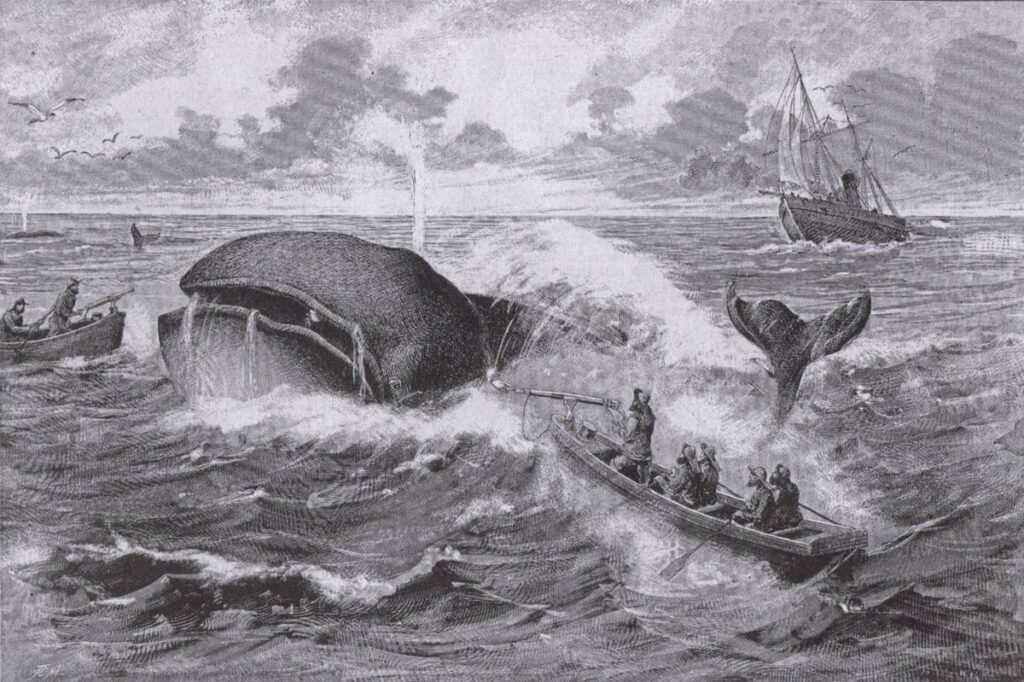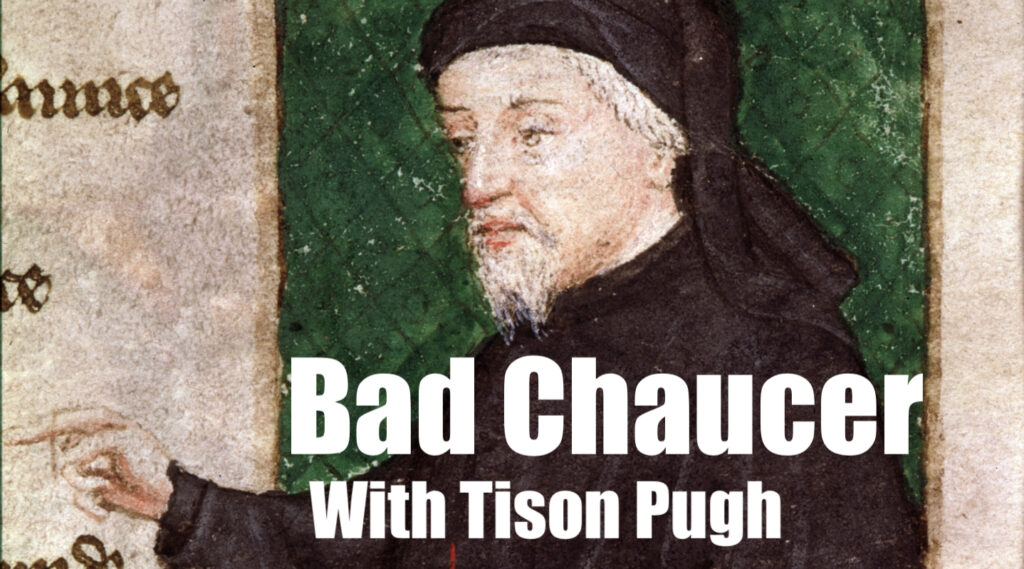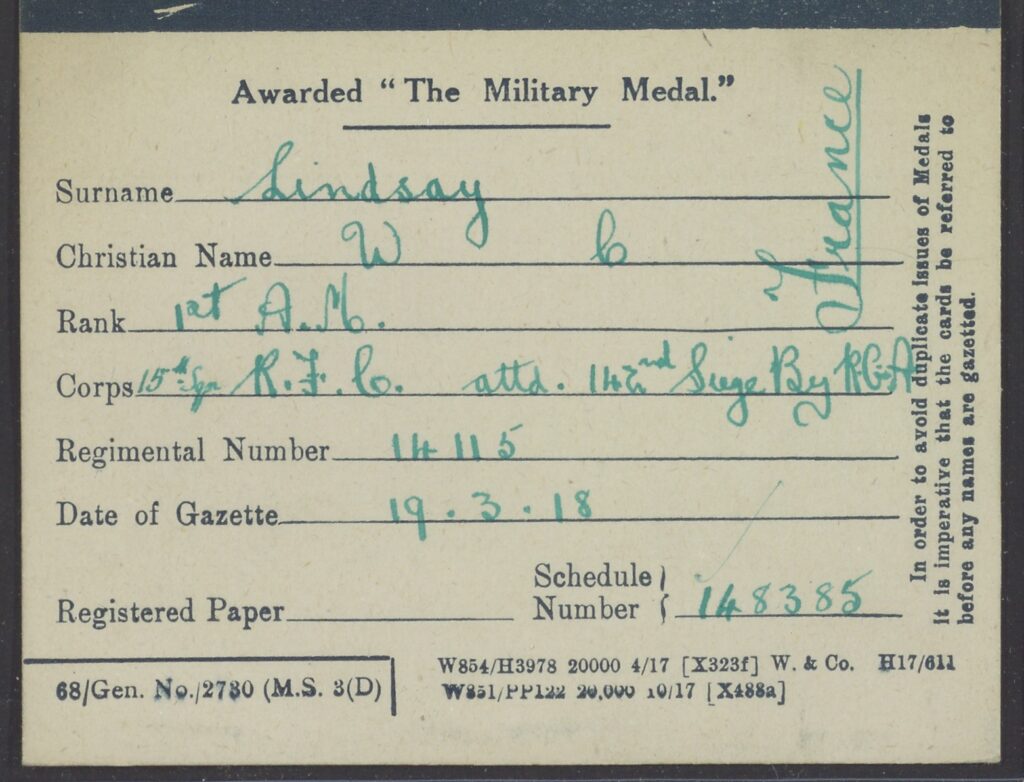Walfang nach neuster Fangmethode (1885) by Jean Bungartz
Public domain via Wikimedia Commons
November 14, 1851, marked the first day that the American public could purchase Moby-Dick; or, The Whale, the latest novel by the modestly successful author Herman Melville, for $1.50 (around $60 today).
At the time, Melville already had five books to his name. Several, including Typee, Omoo and White-Jacket, drew on his experiences living and traveling at sea. His third, Mardi, flirted with romance and deeper philosophy but lacked overall coherence, critics said.
Moby-Dick, which Melville wrote mainly at his Arrowhead estate in Pittsfield, Massachusetts, masterfully married his deep personal experience and research on whaling tales with philosophy, natural science and revelatory biblical prose. In late June 1850, the novelist proposed the partially written novel to his British publisher, Richard Bentley, and promised that he would have it completed by “the latter part of the coming autumn.”
But the writing process took much longer than expected. Moby-Dick was becoming a whale of a book, dense with detail, emotion and plot. To make matters worse, Melville’s American publisher, Harper & Brothers, refused to give him an advance because he still owed the company money from past book deals.
Melville sought loans from friends to sustain himself through another year of writing. To expedite the publishing process and hopefully limit editorial changes, he opted to typeset and copy-edit Moby-Dick independently while he was still writing later sections of the book.
Finally, in the fall of 1851—a year behind schedule—Moby-Dick was ready for publication. Bentley released the first British edition, titled The Whale, on October 18. Harper & Brothers, notwithstanding Melville’s debt, published the first American edition of Moby-Dick on November 14.
Illustration from an early edition of Moby Dick by Augustus Burnham Shute
Public Domain via Wikimedia Commons
Although they were published less than a month apart, the British and American editions featured around 600 substantive differences. Many were alterations in word choice or phrasing, but other changes were major and unsanctioned by Melville. A whole chapter about anointing kings’ heads with sperm whale oil, for instance, was slashed from the British edition because it implied criticism of royal customs. Bentley also left out the epilogue, not as act of censorship but probably because he misplaced it while moving around other sections.
In total, the British first edition was 2,000 words shorter than the American one, despite being published in an ornate three-volume set. Bentley only ordered 500 copies of The Whale—significantly lower than the number printed for Melville’s earlier efforts. Harper & Brothers, meanwhile, printed 2,915 copies of Moby-Dick. The American publisher’s printings of Melville’s previous novels ranged from just over 3,000 to roughly 4,000 copies.
The quality of the single-volume edition of Melville’s latest book attracted some scorn. The New Bedford, Massachusetts, Daily Mercury, the hometown paper of the American whaling industry, called it “a bulky, queer-looking volume, in some respects ‘very like a whale’ even in outward appearance.”
The response to the content of the book itself was similarly lukewarm. The Hartford Courant, in a review, wrote that Moby-Dick somewhat confoundingly straddled the line between fiction and nonfiction. Nevertheless, the reviewer added, “It is well worth reading as a book of amusement.”
To many literary critics, Moby-Dick was simply an adventure tale, not even a patricianly sensational one at that, and certainly not a work of fine literature. A review in the Springfield Daily Republican politely noted Melville’s “quaint though interesting style.”
Reviewers’ apathy was reflected in the novel’s sales figures. Three years after Moby-Dick’s release, the first American printing had still not sold out.
Only some contemporary reviews offered a glimpse of the success and admiration that Moby-Dick would earn in the decades after Melville’s death in 1891. Nathaniel Hawthorne, Melville’s neighbor and friend, to whom the text is dedicated, reproached one negative review with a simple exclamation: “What a book Melville has written! It gives me an idea of much greater power than his preceding ones.”


